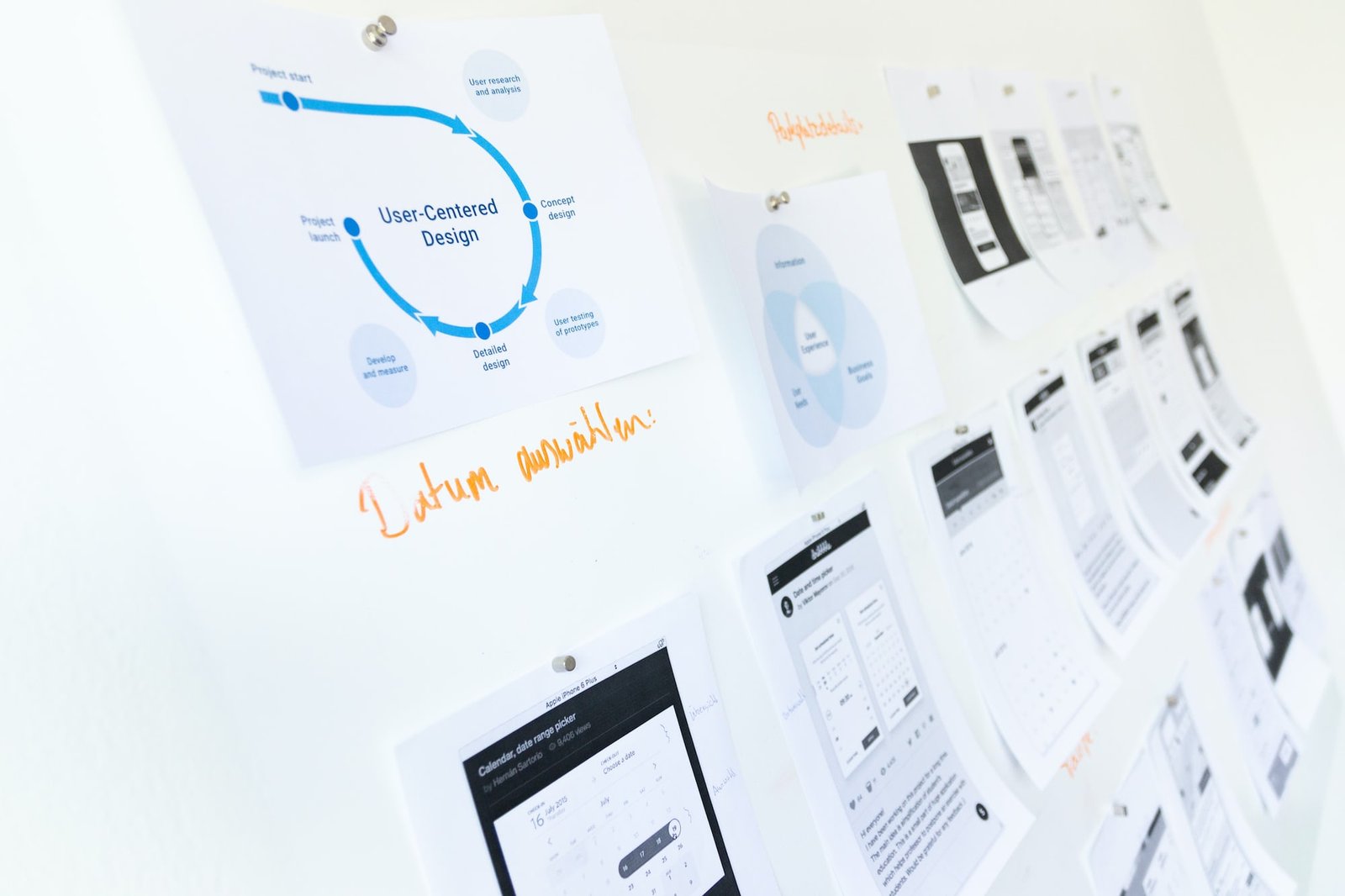Revolutionizing Web Design with AI: Enhancing User Experience

Revolutionizing Web Design with AI: Enhancing User Experience
Introduction
Welcome to my blog, where we explore the latest trends and advancements in web design! Today, we delve into the exciting world of Artificial Intelligence (AI) and its impact on web design, particularly in enhancing user experience. As a professional website designer specializing in WordPress solutions for small businesses, I am thrilled to share with you how AI is revolutionizing the way we approach web design.
AI technology has made tremendous strides in recent years, offering new possibilities and opportunities for businesses to create visually stunning and highly functional websites. From chatbots to predictive analytics, AI is transforming the web design landscape, enabling businesses to deliver personalized experiences that engage and delight users. In this blog post, we will explore the different ways AI is enhancing user experience, discuss the benefits it brings to small businesses, and provide practical tips on how to incorporate AI into your web design strategy.
I. Understanding AI in Web Design
AI, in the context of web design, refers to the use of intelligent algorithms and machine learning techniques to automate and optimize various aspects of website creation and maintenance. It empowers businesses to leverage data-driven insights, automate repetitive tasks, and deliver personalized experiences to users. Let’s take a closer look at some key AI technologies that are revolutionizing web design:
- Natural Language Processing (NLP)
NLP is a branch of AI that focuses on understanding and interpreting human language. It enables websites to communicate with users in a more human-like manner, enhancing the overall user experience. Chatbots powered by NLP algorithms can provide instant support, answer user queries, and even assist in completing transactions. They are available 24/7, reducing response times and increasing customer satisfaction.
- Machine Learning (ML)
ML algorithms enable websites to learn from user interactions and personalize content accordingly. By analyzing user behavior and preferences, ML algorithms can recommend relevant products, services, or content, creating a more personalized and engaging experience. For example, an e-commerce website can use ML to suggest products based on a user’s browsing history and purchase patterns, increasing the likelihood of conversions.
- Predictive Analytics
Predictive analytics uses AI algorithms to analyze historical data and make predictions about future user behavior. By understanding user preferences, businesses can optimize their website design, content, and marketing strategies to better cater to their target audience. For instance, by analyzing user data, a news website can predict which articles are more likely to be read and shared, allowing them to prioritize content creation and distribution.
II. Benefits of AI in Web Design for Small Businesses
Incorporating AI into web design offers numerous benefits for small businesses. Let’s explore how AI can help enhance user experience and drive business growth:
- Improved User Engagement
AI-powered chatbots and personalization techniques enable businesses to engage with users in real-time, providing instant support and tailored recommendations. This fosters a sense of trust and personal connection, leading to increased user engagement and loyalty. By delivering personalized experiences, businesses can stand out from their competitors and build long-lasting relationships with their customers.
- Time and Cost Savings
AI automation reduces the time and effort required for various web design tasks, such as content creation, layout optimization, and bug fixing. This allows businesses to streamline their operations and achieve more with fewer resources. Small businesses can benefit from significant cost savings by automating repetitive tasks, freeing up time and resources to focus on strategic initiatives and business growth.
- Data-Driven Insights
AI algorithms analyze large amounts of user data, uncovering valuable insights that can inform web design decisions. By understanding user preferences, businesses can optimize their website layout, content, and navigation, improving usability and conversion rates. Data-driven insights also enable businesses to identify emerging trends, adapt their marketing strategies, and stay ahead of the competition.
III. Incorporating AI into Your Web Design Strategy
Now that we understand the benefits of AI in web design, let’s explore how small businesses can incorporate AI into their web design strategy:
- Implement AI Chatbots
Integrate AI-powered chatbots into your website to provide instant support and enhance user experience. Chatbots can handle common customer queries, assist with product recommendations, and even process transactions. By offering 24/7 support, businesses can improve customer satisfaction and increase conversions.
- Personalize User Experiences
Utilize AI algorithms to personalize user experiences based on their preferences and behavior. Tailor content, recommendations, and promotions to individual users, increasing engagement and conversion rates. Implement recommendation systems, dynamic content modules, and personalized landing pages to deliver a customized experience that resonates with your target audience.
- Leverage Data Analytics
Invest in data analytics tools to gather insights about user behavior, preferences, and conversion patterns. Use this data to optimize your website design, content strategy, and marketing campaigns. A/B testing, heat maps, and user surveys can provide valuable feedback and help refine your web design strategy.
- Stay Updated with AI Advancements
Keep abreast of the latest AI advancements and technologies in web design. Attend conferences, webinars, and workshops to stay informed about emerging trends and best practices. Networking with other professionals in the field can also provide valuable insights and opportunities for collaboration.
Conclusion
AI is revolutionizing web design by enhancing user experience and empowering businesses with data-driven insights. Small businesses can leverage AI technologies such as NLP, ML, and predictive analytics to engage users, save time and costs, and gain a competitive edge. By incorporating AI chatbots, personalization techniques, and data analytics into their web design strategy, businesses can create websites that captivate users and drive business growth. Embrace the power of AI and unlock the full potential of web design!
FAQ
Q: How can AI improve website usability?
A: AI can improve website usability by analyzing user behavior and preferences, enabling businesses to personalize content, recommend relevant products, and provide instant support through chatbots. By understanding user needs and delivering tailored experiences, AI enhances website usability and user satisfaction.
Q: Can small businesses benefit from AI in web design?
A: Absolutely! Small businesses can leverage AI to automate repetitive tasks, save time and costs, and deliver personalized user experiences. AI technologies are becoming more accessible, enabling small businesses to compete with larger enterprises and enhance their web design strategy.
Q: What are some popular AI-powered web design tools?
A: There are several popular AI-powered web design tools available, such as Grid, Firedrop, and Wix ADI. These tools use AI algorithms to automate various aspects of web design, including layout optimization, content creation, and customization. They empower businesses to create visually stunning and user-friendly websites with minimal effort.
Q: How can AI help businesses optimize their marketing strategies?
A: AI can help businesses optimize their marketing strategies by analyzing user data and providing data-driven insights. By understanding user preferences and behavior, businesses can tailor their marketing campaigns, content, and promotions to better resonate with their target audience. AI algorithms can also predict emerging trends and help businesses stay ahead of the competition.
Q: Is AI in web design a replacement for human designers?
A: No, AI is not a replacement for human designers. While AI can automate certain aspects of web design and provide valuable insights, human designers bring creativity, intuition, and a deep understanding of user experience. The combination of AI and human expertise can result in truly exceptional web design that engages users and achieves business objectives.


